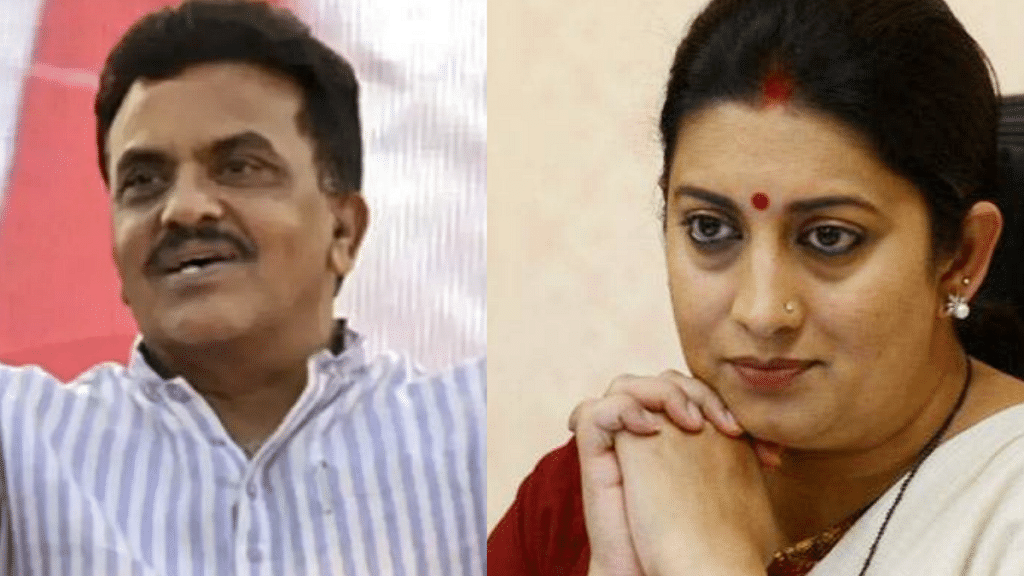In two judgments Wednesday, R.K. Gauba tried to protect the identity of petitioners Irani and Nirupam ‘in their interest’.
New Delhi: Delhi high court judge R.K. Gauba delivered two judgments Wednesday in related cases — cross-petitions — and tried to protect the identities of the petitioners by naming them XYZ in one case and PQR in another.
However, Gauba missed the fact that the identities of XYZ and PQR were available on the high court’s website in earlier orders, clearly reflected in case titles.
XYZ referred to Congress leader Sanjay Nirupam while PQR was the code for Union minister of textiles Smriti Irani.
Immediately after the verdict, Irani tweeted: “6 years ago began a battle in a court of law to uphold my dignity. Today a semblance of justice all thanks to Hon’ble High Court of Delhi. A sense of gratitude for my family & legal team for standing by me through it all. However, the fight continues.”
In his judgment — PQR versus State and Others — Gauba set aside proceedings in a trial court against Irani in a 2012 defamation case filed by Nirupam.
The Congress leader, however, didn’t get any relief in the defamation case filed against him by Irani.
What the case was about
In 2012, while participating in a news debate on a private television channel, Irani and Nirupam got involved in a heated verbal exchange. Nirupam reportedly questioned Irani’s credentials saying, “You used to charge money to perform dance shows on TV. Now you are an election analyst.”
Irani filed a defamation case against Nirupam in 2013. He also filed a cross-defamation suit.
In 2014, Irani, then Union human resources development minister, filed a plea in the Delhi high court seeking to quash the complaint against her by Nirupam, and also the summons issued to her by a trial court.
In turn, Nirupam challenged the complaint filed by Irani, and a court’s 2013 order summoning him over the complaint.
Also read: Why it took 34 years to convict Sajjan Kumar in 1984 riots case
Why were the names withheld?
In his judgments, Gauba explained his rationale behind withholding the names of the two leaders.
“The petitioner and the second respondent have been in public life for quite long, engaged in active politics, they being associated with political parties that generally have been seen to be opposed to each other. In their interest, their names are being withheld from mention, including in the case title,” the judge said.
However, it’s not a common practice to withhold names in court judgments, even in defamation cases.
In recent past, various courts, including the Delhi high court, have named politicians with arguably bigger stature in cases against them. These include Bharatiya Janata Party (BJP) president Amit Shah, Finance Minister Arun Jaitley, former law minister Kapil Sibal and Delhi chief minister Arvind Kejriwal, among others.
Back in May 2013, senior lawyer Ram Jethmalani had filed a suit in a Delhi court, challenging his expulsion from the BJP. He had sought Rs 50 lakh in damages. Earlier this month, the two parties buried the hatchet and jointly moved a plea in a Delhi court, seeking withdrawal of the suit.
Inconsistent approach?
On Wednesday, Gauba delivered another verdict in a criminal matter where a man, accused of raping his daughter 17 years ago, was acquitted 10 months after he died.
While media reports chose to withhold the name of the man to avoid identification, the case title in the high court’s list clearly reflected his name. Gauba’s verdict also mentioned the name of the man’s widow.
